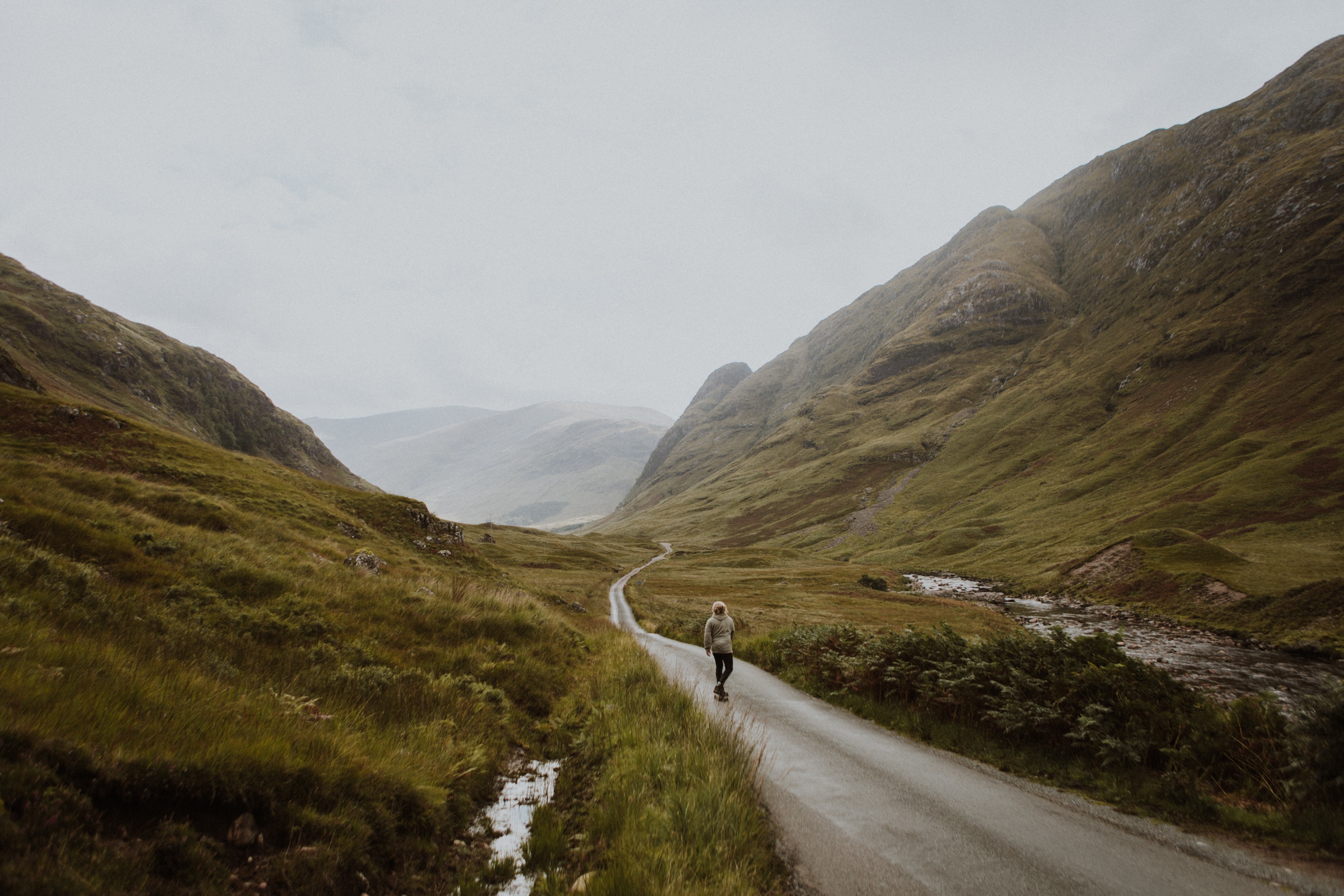
Glen Coe
Crossing the wild desolate Rannoch Moor and driven down into Glen Coe, the valley is encased by an amphitheater of mountain peaks, and splashed with the moody, earthy palette of peat, heather and amber grasses. Chiseled by ice age glaciers and further formed by driving Scottish winds, the “Three Sisters” mountain faces hold in trust their witness to a story of hospitality returned with bloodshed.
Scotland is no stranger to clan warfare, but one account has endured by its shocking betrayal of a sacred understanding in the heart of the Highlands; that of hospitality. And while the valley of Glen Coe itself feels frozen in time, the story of the massacre of the MacDonald Clan clings to Time’s hands as bitterly as freezing wind.
“They came in the blizzard, we offered them heat,
A roof for their heads, dry shoes for their feet;
We wined ‘em and dined ‘em, they ate o’ our meat,
And they slept in the house of MacDonald
They came from Fort William wi’ murder in mind;
The Campbells had orders King William had signed;
‘Put all to the sword,’ these words underlined,
‘And leave none alive called MacDonald.’
They came in the night when the men were asleep,
This band of Argyles, through snow soft and deep;
Like murdering foxes amongst helpless sheep,
They slaughtered the house of MacDonald.
Some died in their beds at the hand o’ the foe;
Some fled in the night and were lost in the snow;
Some lived to accuse him wha’ struck the first blow;
But gone was the House of MacDonald.”
-The Massacre of Glen Coe
By The Corries
There are accounts that not all who came with the band of Campbells to carry out the Crown’s order knew what was ahead, though some did; even some who tried to give veiled warnings of what was to come in the night, urging their hosts to flee for their lives before evening fell.
One such story told of a Campbell soldier distressed at his orders. Sitting at the hearth with the MacDonald family with whom he had billeted, and admiring his host’s plaid, he looked directly at him said to him,
‘Were this good plaid mine, I would put it on and go and look after my cattle. I would put it on my shoulders, and I would take my family and my cattle to a safe place’.
In another home that night, a soldier sitting with a MacDonald family on the evening of the 12th of February, patted their dog on the floor and said to it,
‘Grey dog, if I were you, I would make my bed in the heather tonight’.
Giving a nod to his hosts toward the door, the soldier then pretended to fall asleep, creating a window of escape.
Both families, understanding the warning in the soldiers’ words and taking heed, left their cottages and escaped to the hills, saving their lives.
These stories are reminders that we each have a choice; to follow fear and hate or compassion and courage.
Like Hugh Mackenzie, piper to Captain Robert Campbell of Glenlyon, who stood alone in the field on the Henderson Stone that fateful evening and played a haunting lament on his pipes called ‘Women of the Glen’ as a sign of weeping over what was to come and a warning to their hosts, our voices can also echo out into a world that though we might stand alone, we stand with those in need of our help.
